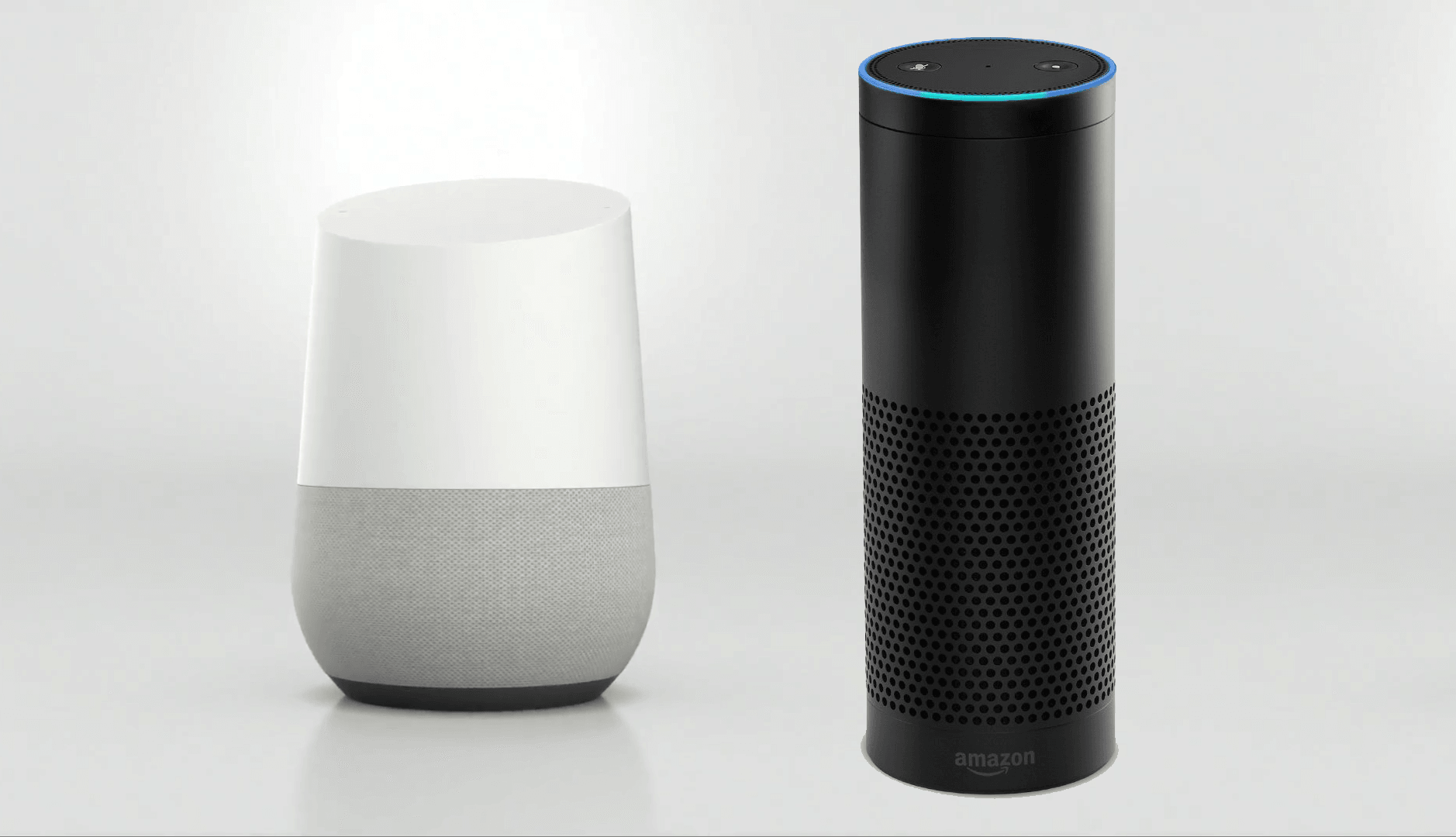Top 5 Important Features of Amazon Echo that Google Home Lacks!
Since the last year, the tech world has been buzzing with Amazon’s announcement of product Echo. Now, Google is finally launching its competitor called Google Home, and it’s coming out later this year for an unspecified price. Google Home looks like it will be a useful, versatile product, but lacks the features offered by Amazon Echo as it aces a personal assistant, music hub, and smart-home control hub smoothly.
Amazon Echo is a tall black cylinder with a blue ring on top that lights up when it’s working. It has an elegant design, that blends among the interiors. Irrespective of its size, Home resembles an air freshener with a shorter, rounder and cuter shape than the Echo. Amazon constantly rolls out new features to Echo and has several advantages over Google’s product.
Here’s a look at some reasons why Amazon Echo is better rather than Google Home:
- Google Home is a new smart home speaker with a chat service called Allo. It is capable of answering voice commands through a new digital assistant. While Amazon Echo has a similar feature named as Alexa which is an artificial intelligence voice assistant that has gained popularity since many months. Regardless, Home has a long way to match Alexa’s charm and features.
- The appeal of Echo as a smart-home control point is exceptional. Amazon Echo is compatible with a lot of services that work with Alexa. From bulbs to refrigerators and car tech, it is able to control several apps while it’s still not clear what services will support Google Home. Anyone in the house who knows the right phrase can control smart-home devices that work with Echo. Google promised that smart-home control would be a part of Home’s offerings, but Amazon has already solidified an expansive list of device partners that work with Echo. Therefore, Google will need to add devices rapidly, and at a regular pace to stay competitive with Amazon.
- There are multiple Echo-like options that are battery-operated portable version and less expensive. Each of them can communicate wirelessly via Bluetooth or a supplied audio cable. Alexa is possibly a step above Home as a personal assistant thanks to a more natural approach to interpreting and responding to spoken inputs.
- Amazon Echo is easily connected to the Amazon ecosystem where you can add stuff to your cart or wish list, get an audiobook and listen to it via Alexa. Google hasn’t revealed yet how its ecosystem will mesh with its assistant.
- Adding to that Amazon is compiled with a new skill almost every week. It’s grown as a smart home tool, but also as the life of the party. Google Home will need to work hard to catch up in terms of extras.
Google Home leverages Google search assistant which is the best search engine available and is able to provide much smarter results for queries. Google Home speakers will blend in with the rest of the interior design as it is customizable, allowing users to change it to a look that fits their style. A portion of the Google Home device has a notification feature while Echo doesn’t include notifications as a primary feature. This is a big plus for Google.
Conclusion
Amazon Echo has a head start, an enthusiastic fan base, and a vast distribution system. Similarly, Google has more experience with voice recognition and personalization, along with a longer history of making hardware. It will try to focus on those features and areas that really matter to the consumer. All in all, the decision on price will likely decide whether Home infiltrates consumers’ homes. These are some sure early indicators of how much competition Google will offer Amazon.

Keval Padia is the founder & CEO of Nimblechapps, a fast-growing mobile app development company. The current innovation and updates of the field lures him to express his views and thoughts on certain topics.





